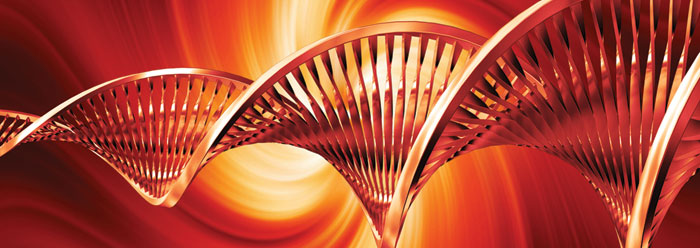If you were to compare DNA across diverse species, what pattern would you expect to see? The Bio-Origins project at ICR has narrowed its focus to DNA to answer several major creation biology questions. We want to: 1) identify the created kind boundaries;1 2) identify the mechanism by which the kinds underwent diversification into the vast array of species we see today;2 and 3) identify the biological reason why the diversification process is limited to change within kinds.3 We also want to gather evidence against the faulty evolutionary paradigm epitomized by the “tree of life.”4
How would you attempt to answer these questions using DNA as a tool? Would you expect to find a “signature” in DNA that marks which species belong to which kinds? Would you expect to find discontinuity that depicts every species as isolated and unique from every other species?5 Perhaps a signature that genetic change started recently (in the past few thousand years)?
As we hypothesize answers to these questions and try to test them, it is helpful to take stock of what we know about species’ origins. First, we know that species undergo change—you don’t look exactly like your parents. Second, we know how fast (at present) change occurs. For example, we know, on average, how many mutations occur each generation in humans. Third, we know from Scripture that change has happened for only 6,000-10,000 years, not for millions of years (as evolution posits). Fourth, we know that species have descended from the kinds that God created during the creation week.
This knowledge creates a framework in which we can identify underlying assumptions about DNA change that must be addressed before our bigger questions can be answered. Several unknowns are apparent.
We don’t know what DNA sequences were present in the original kinds that God created during the creation week of Genesis 1. Did God create each DNA sequence unique to each kind? Or did He re-use gene sequences (subsets of DNA sequences) in different creatures? For example, when creating a gene involved in bone formation (let’s hypothetically call the gene boneF1), did He place the same gene sequence for boneF1 in all vertebrates, or did He uniquely tailor the boneF1 sequence to each kind?
We also don’t know if DNA changes since creation occurred randomly or deterministically. Were changes designed to occur in specific regions of the genome, or did they occur haphazardly?
Another unknown is the rate of change in each species—was it constant or variable? Was there a burst of change post-Flood followed by a slow-down to the present day, or was change constant over every species’ history? All of these assumptions need to be explored before we can use DNA comparisons to answer our bigger creation biology questions.
So, what would we expect the pattern of DNA similarities and differences to be across diverse species? Our molecular studies so far have (tentatively) revealed an intriguing phenomenon. We have compared DNA and protein sequences across ~2,000 species of animals, and, pending peer review, these comparisons naturally lump species into groups that match traditional classification categories based on anatomy and physiology. What do these results imply about the origin of these sequences in these species? Stay tuned to this column as we try to answer this question!
References
- Jeanson, N. 2010. Common Ancestry and the Bible—Discerning Where to Draw the Line. Acts & Facts. 39 (6): 6.
- Jeanson, N. 2010. The Impetus for Biological Change. Acts & Facts. 39 (8): 6.
- Jeanson, N. 2010. The Limit to Biological Change. Acts & Facts. 39 (7): 6.
- Jeanson, N. 2010. New Frontiers in Animal Classification. Acts & Facts. 39 (5): 6.
- Jeanson, N. 2011. Molecular Equidistance: The Echo of Discontinuity? Acts & Facts. 40 (2): 6.
* Dr. Jeanson is Research Associate and received his Ph.D. in Cell and Developmental Biology from Harvard University.
Cite this article: Jeanson, N. 2012. Bio-Origins Project Update, Comparing 2,000 Animal Species Molecularly. Acts & Facts. 41 (9): 6.



















